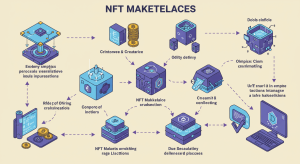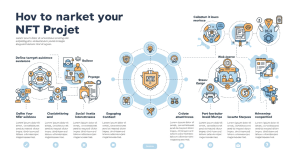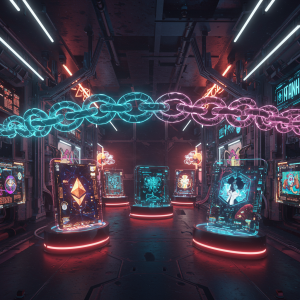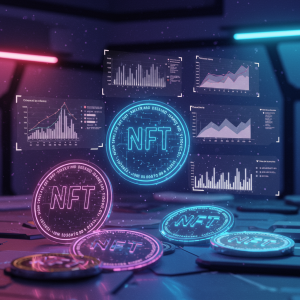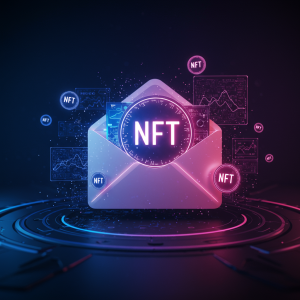NFT Marketing Services: Your Complete Guide to Digital Success

The NFT market has exploded from a niche digital curiosity to a multi-billion dollar industry. Yet for every successful NFT collection that captures headlines and generates millions in sales, countless others struggle to find their audience. The difference often comes down to one crucial factor: effective marketing.
NFT marketing services have emerged as the bridge between creative digital assets and their intended collectors. These specialized agencies and consultants understand the unique challenges of promoting non-fungible tokens in an increasingly crowded marketplace. This guide will explore what NFT marketing services offer, how to choose the right partner, and strategies to maximize your project’s visibility and sales.
What Are NFT Marketing Services?
NFT marketing services are specialized agencies or consultants that help creators, artists, and brands promote their non-fungible token projects. These services combine traditional digital marketing techniques with Web3-specific strategies to build awareness, generate hype, and drive sales for NFT collections.
Unlike conventional marketing, NFT promotion requires deep understanding of blockchain technology, cryptocurrency communities, and the cultural nuances of digital collectibles. Marketing professionals in this space must navigate Discord servers, engage with crypto Twitter, and speak the language of early adopters and collectors.
Core Components of NFT Marketing
Professional NFT marketing services typically include several key elements:
Community Building: Creating and nurturing engaged communities around your NFT project through Discord servers, Telegram groups, and social media platforms.
Content Strategy: Developing compelling narratives, artwork reveals, and educational content that resonates with potential collectors.
Influencer Partnerships: Connecting with crypto influencers, NFT collectors, and industry thought leaders to amplify your message.
Public Relations: Securing coverage in crypto publications, mainstream media, and industry podcasts to build credibility and awareness.
Paid Advertising: Running targeted campaigns on platforms that allow crypto-related advertising, such as Twitter, Reddit, and specialized Web3 advertising networks.
Types of NFT Marketing Services
The NFT marketing landscape offers various service models to match different project needs and budgets.
Full-Service Agencies
Full-service NFT marketing agencies provide comprehensive support from project conception to post-launch community management. These agencies typically employ teams of specialists including social media managers, content creators, PR professionals, and Web3 strategists.
Full-service agencies work best for larger projects with substantial budgets and complex marketing needs. They can handle everything from brand development to influencer partnerships, allowing creators to focus on developing their art or utility.
Specialized Consultants
Many NFT marketing professionals operate as specialized consultants, focusing on specific aspects of promotion. You might find consultants who specialize in:
- Discord community management
- Twitter growth and engagement
- PR and media relations
- Influencer partnerships
- Marketplace optimization
Specialized consultants often provide more personalized attention and may offer more flexible pricing structures than larger agencies.
Hybrid Service Providers
Some marketing providers offer hybrid models, combining agency-level strategy with freelance flexibility. These services might include core team members supplemented by a network of specialized contractors.
Key NFT Marketing Strategies
Successful NFT marketing requires a multi-faceted approach that builds authentic connections with potential collectors.
Community-First Approach
The most successful NFT projects prioritize community building over direct sales pitches. This involves:
Creating Value Before Asking: Providing entertainment, education, or exclusive access before requesting purchases or engagement.
Fostering Genuine Connections: Encouraging conversations between community members, not just between the project and followers.
Transparency and Communication: Regular updates, honest communication about project development, and open dialogue about challenges and successes.
Storytelling and Narrative Development
NFT collectors often purchase based on emotional connection rather than purely speculative motives. Effective storytelling involves:
Origin Stories: Sharing the inspiration behind the project and the creator’s journey.
Roadmap Narratives: Presenting project development as an unfolding story with clear milestones and exciting reveals.
Community Participation: Allowing collectors to contribute to the project’s story through voting, suggestions, or collaborative creation.
Strategic Platform Selection
Different platforms serve different purposes in NFT marketing:
Twitter: Essential for real-time engagement, news sharing, and connecting with the broader crypto community.
Discord: Primary platform for building tight-knit communities and providing ongoing value to holders.
Instagram: Visual platform perfect for showcasing artwork and behind-the-scenes content.
TikTok: Emerging platform for reaching younger audiences and creating viral content around NFT projects.
Influencer and Partnership Marketing

Collaborating with established voices in the NFT space can significantly amplify your project’s reach. Effective partnership strategies include:
Micro-Influencer Collaborations: Working with smaller, highly engaged influencers who have dedicated followings in specific niches.
Cross-Project Partnerships: Collaborating with complementary NFT projects to share audiences and create mutual value.
Celebrity Endorsements: When budget allows, celebrity partnerships can provide massive exposure, though authenticity remains crucial.
Choosing the Right NFT Marketing Service
Selecting the right marketing partner can make or break your NFT project’s success.
Evaluating Experience and Track Record
Look for marketing services with demonstrable experience in the NFT space. This includes:
Portfolio Review: Examine case studies and previous projects to understand their approach and results.
Industry Connections: Established relationships with influencers, media outlets, and marketplace platforms.
Technical Understanding: Deep knowledge of blockchain technology, minting processes, and marketplace dynamics.
Assessing Cultural Fit
NFT marketing requires authentic engagement with crypto-native communities. Evaluate potential partners based on:
Community Presence: Are they active participants in NFT and crypto communities, or do they seem like outsiders trying to capitalize on trends?
Communication Style: Do they communicate in ways that feel natural within crypto culture, or do they rely on traditional marketing speak?
Values Alignment: Do their values and approach align with your project’s mission and target audience?
Understanding Pricing Models
NFT marketing services use various pricing structures:
Retainer Models: Monthly fees for ongoing services, typically ranging from $5,000 to $50,000+ depending on scope.
Project-Based Pricing: Fixed fees for specific campaigns or launch support, often between $10,000 and $100,000.
Performance-Based Pricing: Compensation tied to specific metrics like sales volume, community growth, or engagement rates.
Hybrid Models: Combination of base retainer plus performance bonuses.
Measuring NFT Marketing Success
Effective NFT marketing requires tracking both traditional marketing metrics and Web3-specific indicators.
Traditional Marketing Metrics
Social Media Growth: Follower counts, engagement rates, and reach across platforms.
Website Traffic: Visits to project websites, time spent on pages, and conversion rates.
Media Coverage: Number of articles, podcast appearances, and overall press mentions.
Web3-Specific Metrics
Community Health: Active members in Discord servers, quality of conversations, and member retention rates.
Marketplace Performance: Floor prices, trading volume, and holder distribution.
Wallet Connections: Number of unique wallets following the project and participating in activities.
Holder Engagement: Percentage of holders actively participating in community activities and governance.
Common Pitfalls in NFT Marketing
Understanding common mistakes can help you avoid costly errors in your marketing approach.
Over-Promising and Under-Delivering
Many NFT projects fail by making grandiose promises about utility, roadmaps, or returns without the capability to deliver. This destroys community trust and leads to project abandonment.
Neglecting Post-Launch Community Management
Marketing efforts often focus heavily on pre-launch hype while neglecting the crucial post-launch phase. Successful projects maintain active community engagement long after the initial mint.
Ignoring Regulatory Considerations
NFT marketing must navigate evolving regulatory landscapes. Avoid making claims that could be interpreted as investment advice or securities offerings.
Focusing Solely on Financial Returns
While many collectors are motivated by potential profits, successful projects also provide genuine value through art, utility, or community experiences.
The Future of NFT Marketing
As the NFT space matures, marketing approaches continue to evolve.
Increased Professionalization
The industry is moving toward more professional standards, with established agencies developing specialized NFT divisions and new agencies formed specifically for Web3 marketing.
Enhanced Utility Focus
Future NFT marketing will likely emphasize real-world utility and long-term value proposition rather than purely speculative appeal.
Cross-Platform Integration
Marketing strategies will increasingly integrate traditional platforms with emerging Web3 social networks and metaverse environments.
Regulatory Compliance
As regulations become clearer, marketing services will need to ensure compliance while maintaining effectiveness.
Building Your NFT Marketing Strategy
Success in NFT marketing requires careful planning and execution across multiple touchpoints.
Start by defining your project’s unique value proposition and target audience. Develop a comprehensive content strategy that tells your story authentically while building genuine excitement. Choose marketing partners who understand both your vision and the technical aspects of NFT promotion.
Remember that effective NFT marketing is ultimately about building relationships and communities, not just driving sales. Focus on providing real value to your audience, maintain transparency in your communications, and be prepared for the long-term commitment required to build a successful NFT project.
The NFT space rewards authenticity, creativity, and genuine community engagement. By choosing the right marketing services and maintaining focus on these core principles, your project can navigate the competitive landscape and find its dedicated audience of collectors and supporters.

